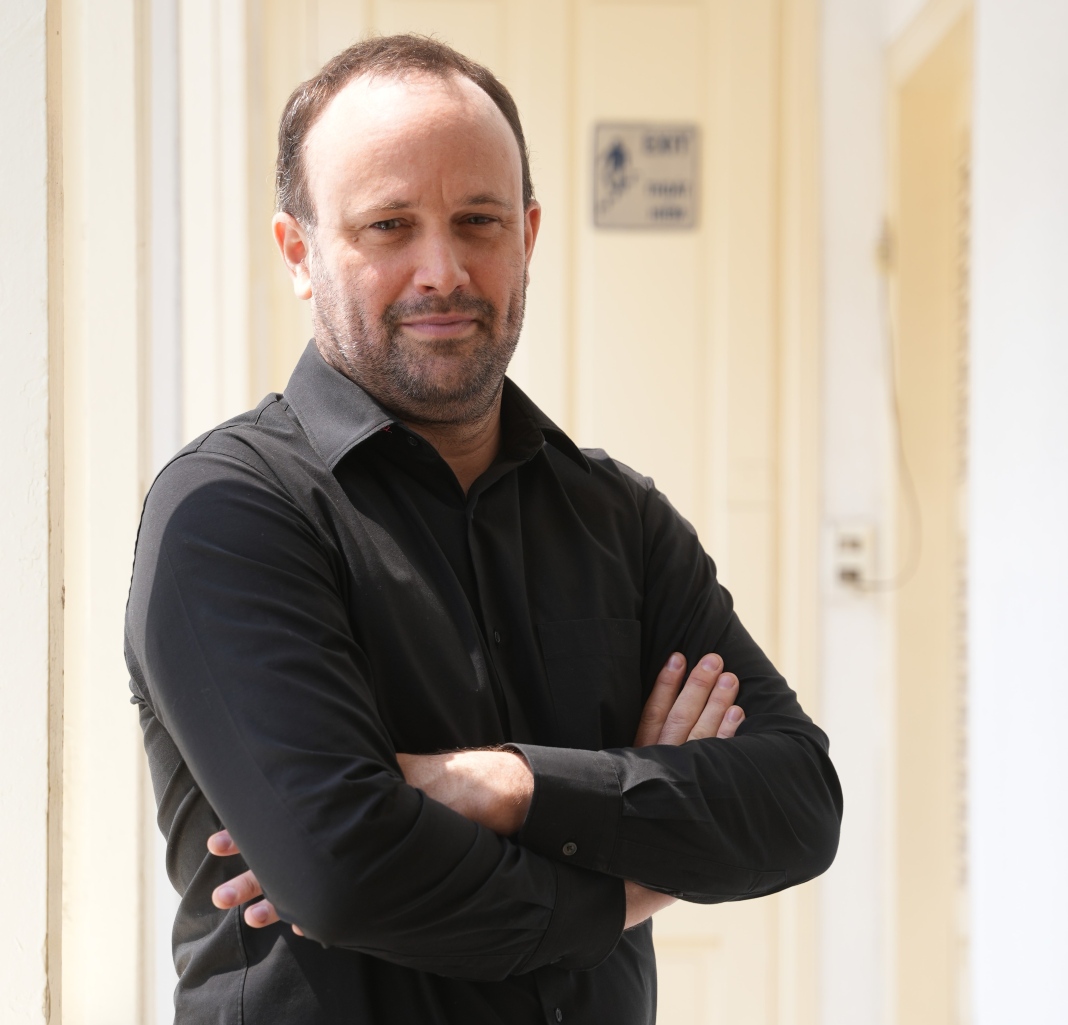The English language has emerged as the most coveted second language in Vietnam, sparking a surge in the demand for learning the language in recent years. Consequently, there has been a notable influx of foreigners arriving in the country to teach English. Shedding light on this phenomenon, David Larson, a U.S. national with over 13 years of experience residing and teaching English in Vietnam, shares insights gleaned from his extensive experience.
The Saigon Times: What initially prompted your move to Vietnam?
David Larson: In 2010, I obtained my Cambridge CELTA Teaching Certificate, fueling my aspiration for a global teaching adventure. I applied for teaching positions worldwide, and Vietnam presented itself as my first destination. Without hesitation, I embraced the opportunity and embarked on my journey. My teaching journey commenced in the vibrant northern city of Haiphong, where I dedicated a fulfilling 15 months to teaching English.
Can you share some of the key changes you have observed in Vietnam during your time here?
Over the past 13 years, one of the most notable shifts I have observed is in the mindset of the people. In my field of work, I have witnessed a growing openness and acceptance of diverse ideas and work approaches. The necessity for the Vietnamese to interact with people from various nationalities has contributed to a more open-minded society. Engaging in English conversations has become a common sight in Vietnam, with many expressing eagerness to participate. Additionally, in terms of infrastructure, significant progress has been made. While the eagerly awaited first metro line in HCMC is yet to officially open, there have been substantial improvements overall. The road network is now quite comprehensive, and, despite occasional traffic jams and unpredictable driving behavior, navigating HCMC and the rest of the country has become fairly straightforward.
How has your professional journey evolved since moving to Vietnam, and what opportunities have you explored in your career here?
I have had the experience of teaching at major language centers such as Apollo and ILA, in addition to working with multinational corporations like Big C and Bosch. My teaching repertoire spans all age groups, proficiency levels, and class types. Nonetheless, if I were to pinpoint my strengths, I would highlight my effectiveness in teaching General/Academic English to teenagers and delivering Business English instruction to adults.
How did you adapt to the education system in Vietnam, and what changes did you make to enhance the learning experience for your students?
During my Cambridge CELTA Training, we were instructed in a straightforward yet thorough and effective teaching approach. A key point of our methodology emphasized creating student-centered classrooms, shifting the focus away from the teacher. This concept is relatively new in the West (introduced in the last 30 years or so) and it was completely alien to our students. It took a few months of effort to help Vietnamese students understand, accept, and incorporate our methodology. Once they embraced the approach, the majority found it enjoyable and engaging.
Were there any surprising aspects of Vietnamese culture that you discovered while teaching, and how did it impact your approach to teaching?
The respect for the teacher is probably the aspect that stands out the most in comparison to Western countries. Despite this formal respect, students attending language centers often arrive fatigued after a full day of school or office work. Their tiredness and lack of focus are understandable. However, this presents a challenge to actually having a productive class. While students may outwardly show respect, they are frequently distracted and not fully engaged in active listening and participation.
What are the basic qualifications and requirements for foreigners to become English language teachers in Vietnam?
To qualify for teaching in Vietnam, individuals should ensure they possess a Bachelor’s Degree and a Teaching Certificate like CELTA or TEFL. I strongly recommend opting for a face-to-face program, as online certificates hold limited to no value for most reputable employers. However, it is crucial not to exclusively focus on degrees, as practical experience is equally essential to be valuable to potential employers. For those starting out, I suggest considering schools like VUS, ILA, and Apollo, as they offer opportunities to teach various classes, ages, and proficiency levels. After gaining 2-3 years of experience, consider transitioning to more academically-oriented centers such as ACET, or explore opportunities in universities or corporate settings, depending on your preferences.
Can you outline the typical hiring process for English language teaching positions in Vietnam?
Potential candidates should expect to undergo at least two interviews, or one interview coupled with a demo class for most serious positions. In rapidly expanding centers, employers may streamline the process to just one interview due to the urgency of filling positions. The extent of the interview process often depends on how much the candidate need to secure the job.
How important is prior teaching experience, and are there opportunities for those without formal teaching backgrounds?
In my view, practical experience carries more weight than a long list of degrees. It is crucial to accumulate 2-3 years of teaching experience, as this foundation makes it easier to market yourself if you decide to transition to academic or business English roles. While it is possible to secure work without a formal teaching background, individuals in such situations may face potential exploitation by employers who do not follow the law. Hence, I do not recommend this option. Obtaining a CELTA or TEFL certification takes around one month and costs around US$1,500. Considering the benefits gained in return, this represents a modest investment of both time and money.
What types of schools or language centers are most common for foreign English teachers, and what are the differences between them?
There are schools like ILA, VUS, and Apollo, which prioritize growth in their business strategy. These institutions offer ample opportunities for new teachers to gain valuable experience. On the other hand, schools like ACET concentrate on Academic English and are more selective with their hiring process. Additionally, there are schools such as EMG, specializing in sending teachers to public schools exclusively. EMG serves as a commendable starting point for newcomers, providing stable schedules and a steady income.
Can you provide insights into the salary expectations and benefits for English language teachers in Vietnam?
For new teachers, the initial salary typically hovers around US$1,000 gross or VND24 million gross for approximately 14-20 hours of teaching per week. This might not seem like a lot at first to some people, especially in big cities like HCMC, but in practice, it is quite good. Additionally, it is common for new teachers to have opportunities for overtime, offering both extra income and valuable teaching experience.
How has the demand for English teachers evolved over the years in Vietnam, and what opportunities exist for newcomers in the field?
The demand for English teachers remains high, and I would not say it has decreased over the past 13 years. However, there appears to be an excess of supply. When navigating the city, it is evident that new language centers are popping up almost daily. This is obviously not good for quality, but people are of course free to start the business they choose to. Moreover, as Vietnamese people become increasingly tech-savvy, more individuals are learning English without attending traditional language center classes. To stay competitive, language centers should consider specializing further to offer added value to their products.
the past 13 years. However, there appears to be an excess of supply. When navigating the city, it is evident that new language centers are popping up almost daily. This is obviously not good for quality, but people are of course free to start the business they choose to. Moreover, as Vietnamese people become increasingly tech-savvy, more individuals are learning English without attending traditional language center classes. To stay competitive, language centers should consider specializing further to offer added value to their products.
What advice do you have for other expatriates looking to build a long-term life and start teaching English in Vietnam?
If you are not very young and adventurous (under 30), I would not recommend arriving in Vietnam on a tourist visa and figuring things out along the way. Do some research about the country, potential companies, ensure your basic degrees and certificates are in order, and use official channels as much as possible. Once you are settled, there are plenty of ways to add adventure to your experience. The tropical lifestyle, with its delightful fruits, coffee, and seafood, adds to the overall comfort of day-to-day living. However, be prepared for linguistic and cultural challenges. Do not be intimidated by the tonal nature of Vietnamese, learn the basics for survival and daily communication. Venture onto the streets, where real life unfolds, and, as cliché as it may sound, take life one day at a time!
Reported by The Ky









